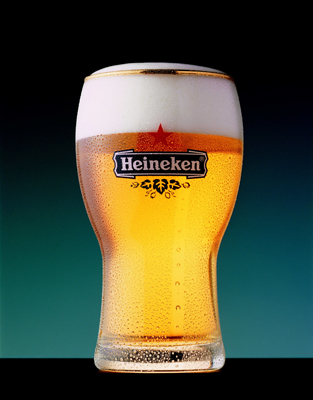EU cracks down on Dutch beer cartel
European Commission fines Heineken, Grolsch and Bavaria EUR 273.8 million over Dutch beer cartel in the late 1990s.
In April Heineken was fined EUR219.3 million, Grolsch was fined EUR31.7 million while Bavaria was sanctioned EUR22.9 million.
The Commission said the companies held numerous unofficial meetings between at least 1996 and 1999, during which they coordinated prices and price increases of beer in the Netherlands.
Although InBev too was involved in the illegal activity, it received no fines as this time the Belgian brewer acted as the cartel whistleblower.
Perhaps InBev has learnt a lesson that the EU takes no cavalier attitude to cartels. There have been previous attempts by the European Commission to curb beer cartels. Only in 2001 did it fine Interbrew, Alken Maes, Danone, Haacht and Martens a total of over EUR 90 million for participating in two distinct secret cartels on the Belgian beer market between 1993 and 1998. The infringements included market sharing, price fixing and information exchange.
Given the severity of the fine – Heineken’s EUR 219 million is big money – it comes as a surprise when studying the media reports following the Commission’s ruling that even the financial press refrained from pointing fingers and from asking pertinent questions like “Who was responsible for this?” and “Which executives were privy to these consultations?” You bet it was not some recently hired “Friends of the Italian Opera” sales reps who orchestrated a cartel with such far-reaching powers. But even if such had been the case, the responsibility rests squarely on those who have always justified their fat cat salaries with reference to the big responsibilities they carry.
The Commission’s sanctions again bring to the fore the fundamental issue of corporate ethics and governance, namely how to hold responsible those who were responsible for the misdeeds. Shareholders should no longer accept that they have to foot the bill if their hired managers err from the path of good (read “legal”) corporate behaviour.
In response to the fine Heineken claimed to be “highly surprised by the decision and finds the fine excessive and unjustified.”
The brewer’s statement says that Heineken disagrees with the suggestion made by the European Commission that prices in the Dutch market were increased via co-ordinated practices. The company demonstrated to the European Commission that consumer prices in the off-trade (food) market actually declined during the time period in question. In the on-trade (horeca) market, the company’s price increases were in line with the CPI (Consumer Price Index). In addition, Heineken also argued that in the Netherlands it has absolutely no involvement in the private label segment of the market, one of the areas that the European Commission investigated.
The company has two months and ten days, following the receipt of the full decision, in which to file an appeal.
Heineken has already announced that it will treat the imposed fine as an exceptional item in this current year and that this will have no impact on Heineken’s 2007 full-year forecast of 10 percent to 13 percent organic growth in net profit.
Pending any decision on its next steps, Heineken will refrain from further comment.
Just an afterthought - random price comparisons revealed that in the Netherlands a glass of beer (0.2 litres) sets you back EUR 2.50 – EUR 3.80. In Belgium the same glass of beer will cost you EUR 1.50. Even at some tourist joints in the centre of Brussels, they will only charge you EUR 1.60 for a glass of beer.


